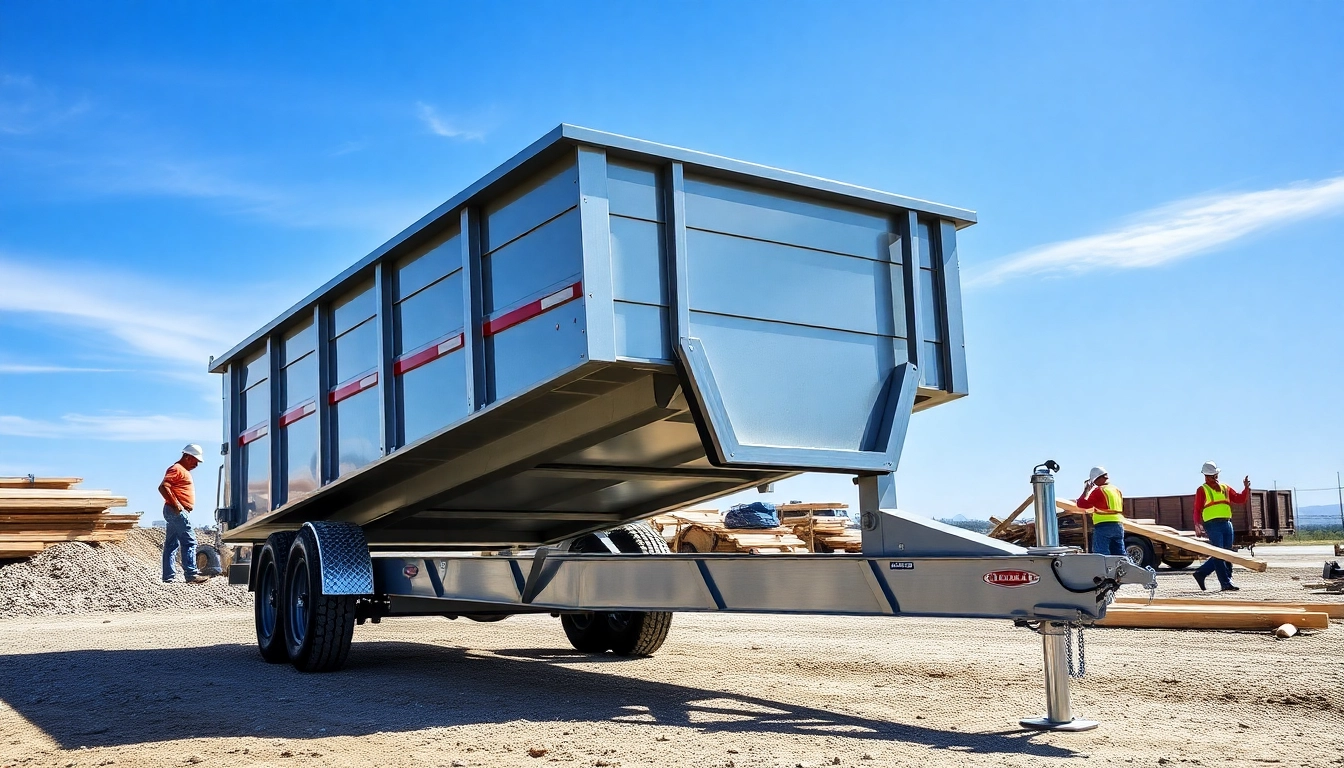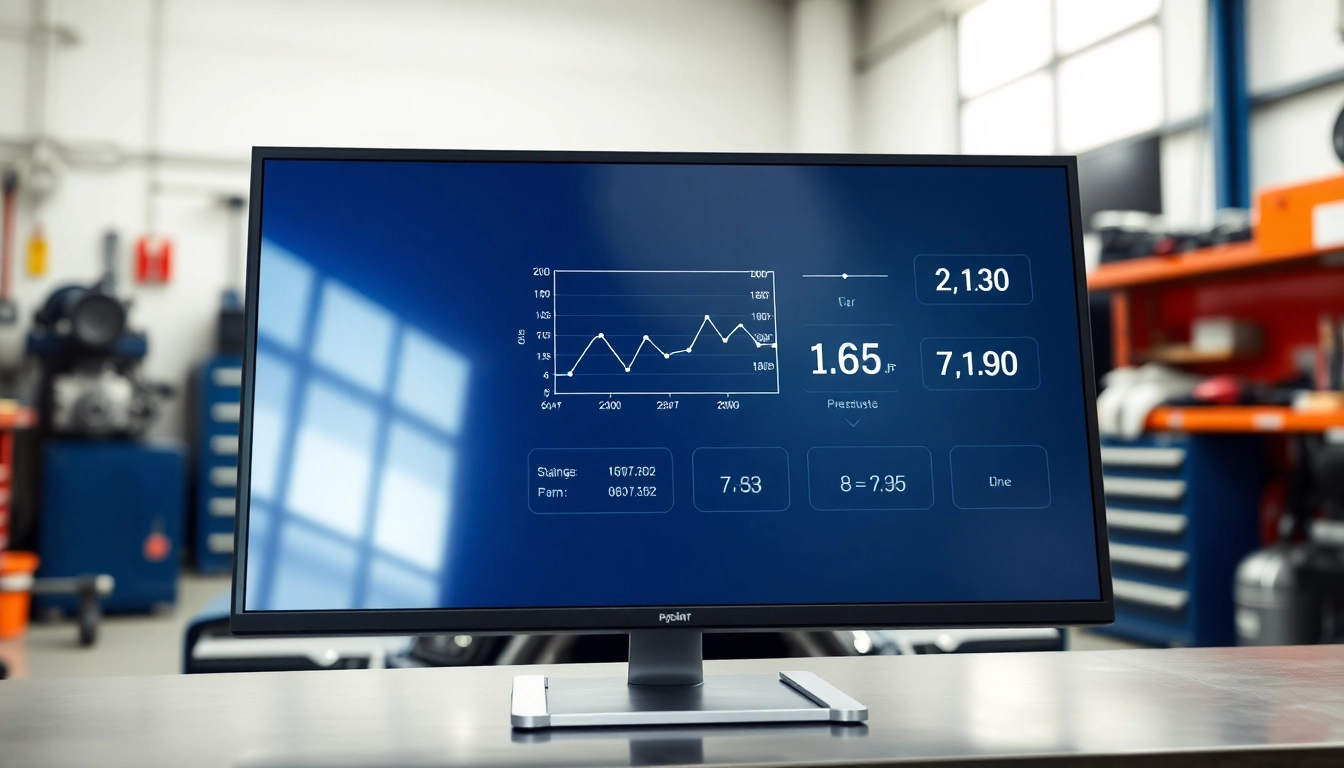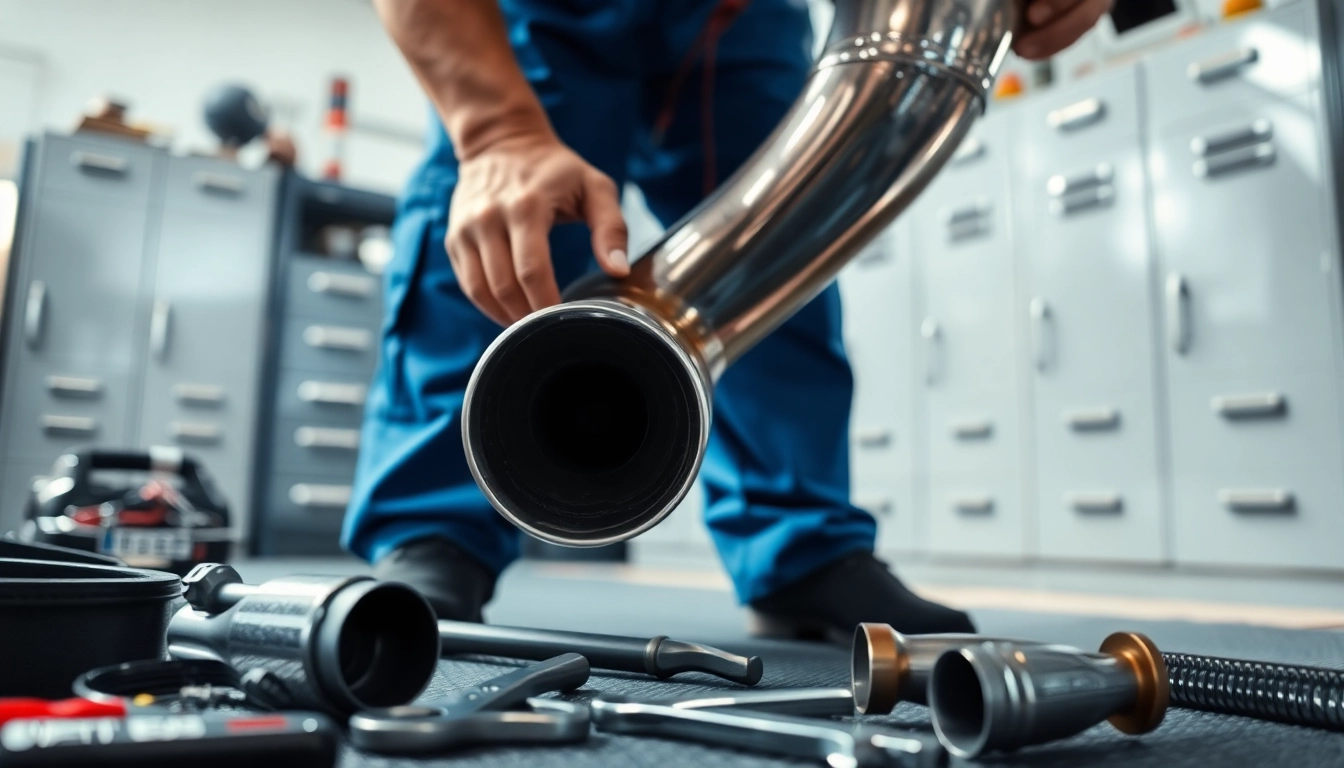Introduction to Dumpster Trailers for Sale
In the realm of construction, landscaping, and waste management, the need for efficient hauling solutions is paramount. This is where dumpster trailers for sale come into play. These versatile trailers offer an array of features designed to facilitate the easy transport of debris, tools, and various materials. But with multiple options available, buyers often find themselves navigating a complex marketplace. This comprehensive guide aims to illuminate the essential aspects of dumpster trailers, making it easier for you to select the right model for your needs.
What are Dumpster Trailers?
Dumpster trailers are specialized vehicles designed specifically for waste collection and transportation. Unlike traditional utility trailers, they come equipped with features tailored for heavy loads and easy unloading, making them ideal for construction sites, gardening projects, and waste management companies. These trailers have high sidewalls and a tilt feature that allows the contents to be dumped easily, reducing manual labor and expediting project timelines.
Common Uses and Benefits
The benefits of dumpster trailers are numerous, and their versatility makes them indispensable in various sectors. Some common uses include:
- Construction Sites: They transport construction debris, including wood, metal scraps, and concrete.
- Landscaping Projects: Ideal for hauling dirt, clippings, and other green waste.
- Home Renovations: Perfect for disposing of old furniture, flooring, and appliances.
- Event Cleanup: Useful for trash collection during events, fairs, and festivals.
Utilizing dumpster trailers significantly reduces the hassle of transporting materials and ensures compliance with local waste disposal regulations. Their robust design enables them to carry heavy loads with ease, improving efficiency in various projects.
Key Features to Look For
Choosing the right dumpster trailer requires an understanding of its key features. Here are some important aspects to consider:
- Load Capacity: Ensure that the trailer can handle the weight of the materials you plan to transport.
- Size: The dimensions should align with your specific needs, whether for residential or commercial use.
- Construction Material: Trailers made from durable steel or aluminum ensure longevity and reliability.
- Dump Mechanism: Look for models that feature hydraulic lifts for easier unloading.
- Towing Capacity: Confirm that your vehicle can safely tow the trailer, particularly when fully loaded.
Types of Dumpster Trailers Available
Standard Dump Trailers
Standard dump trailers are the most common type. They generally come with a conventional design and include a hydraulic lift function, allowing for easy dumping of materials. Features might include:
- Capacity: Typically ranges from 5 to 20 cubic yards, depending on the model.
- Construction: Made from robust materials to withstand heavy loads.
- Versatility: Suitable for a range of hauling tasks, from construction debris to yard waste.
Roll-Off Dump Trailers
Roll-off trailers are engineered for more extensive waste management operations. These types typically have a flatbed design and allow containers to roll off for easy loading and unloading. Key characteristics include:
- Container Compatibility: Capable of accommodating various roll-off containers, making them ideal for larger projects.
- Custom Sizes: Available in multiple sizes, depending on the waste management needs.
- Efficiency: Designed for quick loading and unloading, decreasing turnaround times in busy environments.
Gooseneck Dump Trailers
Gooseneck dump trailers offer increased stability and maneuverability, making them suitable for heavy loads and larger machines. They attach to a gooseneck hitch, improving weight distribution. Advantages include:
- Enhanced Towing Capacity: Better suited for heavier loads compared to standard bumper-pull trailers.
- Improved Stability: Reduces sway and enhances control when towing.
- Greater Load Capacity: Often capable of carrying larger volumes of waste.
Understanding Pricing and Financing Options
Factors That Affect Pricing
The cost of dumpster trailers can vary significantly based on several factors. Understanding these can help you set a budget and compare options effectively:
- Material Quality: Trailers made from high-grade materials may come at a higher price but provide durability.
- Size: Larger trailers typically cost more due to the increased material and manufacturing costs.
- Features: Advanced functionalities, such as hydraulic systems and custom tow configurations, can also affect pricing.
- Brand Reputation: Established brands may charge a premium for their warranties and customer service.
Available Financing Plans
Most dealers offer various financing options to help buyers acquire dumpster trailers without overwhelming upfront costs. Common financing options include:
- Installment Plans: Allows buyers to pay in monthly installments, spreading the cost over time.
- Leasing Options: Leasing may be beneficial for those who do not wish to buy outright and want flexibility.
- Special Promotions: Occasionally, manufacturers or dealers may offer promotional rates or discounts to make purchasing easier.
Research available financing options thoroughly and opt for one that best fits your financial situation.
Cost Comparison with Other Trailers
Understanding how dumpster trailer pricing compares to other types of trailers aids in making informed purchasing decisions. Typically, here’s how they measure up:
- Utility Trailers: Generally cost less than dumpster trailers but lack the specialized features for waste management.
- Cargo Trailers: May provide more enclosed storage but do not accommodate delineated waste disposal efficiently.
- Flatbed Trailers: Offer versatility but do not come equipped with the dump feature offered in dumpster trailers.
Maintenance and Care for Your Trailer
Regular Maintenance Tips
To ensure your dumpster trailer remains in top working condition, regular maintenance is crucial. Here are some essential maintenance practices:
- Check Tires: Regularly inspect tire pressure, tread wear, and overall condition.
- Clean Frequently: Clean the trailer after use to prevent residue buildup that could corrode surfaces.
- Inspect Hydraulic Systems: Regularly examine hydraulic fluid levels and look for leaks.
Common Repair Issues
Despite best efforts, issues may arise over time. Here are common problems and how to address them:
- Hydraulic Failure: Can be fixed by checking fluid levels or replacing faulty components.
- Tire Damage: Flat tires should be addressed promptly, either by realizing it’s time for a replacement or patching up small punctures.
- Structural Weakness: Inspect for rust or damage and take measures to repair or reinforce stressed areas.
Keeping Your Trailer in Optimal Condition
Maintaining your dumpster trailer’s structural integrity involves more than just repairs. Consider the following tips for long-term care:
- Routine Inspections: Schedule regular check-ups to identify potential issues before they escalate.
- Protective Coatings: Use rust-proof paint or oil to protect the metal against corrosion.
- Store Properly: If not in use, ensure the trailer is parked in a secure and dry place, preferably indoors.
Where to Purchase Dumpster Trailers for Sale
Dealerships vs. Private Sellers
Deciding whether to buy from a dealership or a private seller is an important choice. Each avenue has its pros and cons:
- Dealerships: Generally offer warranties and have certified mechanics for repairs, ensuring peace of mind.
- Private Sellers: May offer lower prices but come with fewer consumer protections and no warranties.
Evaluate your needs and comfort level with used purchases before making your choice.
Online Marketplaces
Another avenue for purchasing dumpster trailers is through online marketplaces. These platforms provide extensive listings, allowing buyers to filter and compare based on specifications, price, and distance. Tips for buying online include:
- Research Seller Ratings: Always check seller reviews and histories.
- Inquire About the Condition: Ask for detailed descriptions and photographs of the trailer.
- Arrange a Pre-Purchase Inspection: If feasible, inspect the trailer in person before committing.
What to Expect During the Buying Process
The journey to purchasing a dumpster trailer typically involves several steps:
- Research: Look for available inventory fitting your specifications.
- Inquire: Reach out to sellers for additional information and details.
- Inspection: Schedule a time to view the trailer or request additional photographs and information.
- Payment Arrangements: Discuss financing options or finalize payment plans as needed.
- Transfer of Ownership: Complete the necessary paperwork to ensure a smooth transfer.



